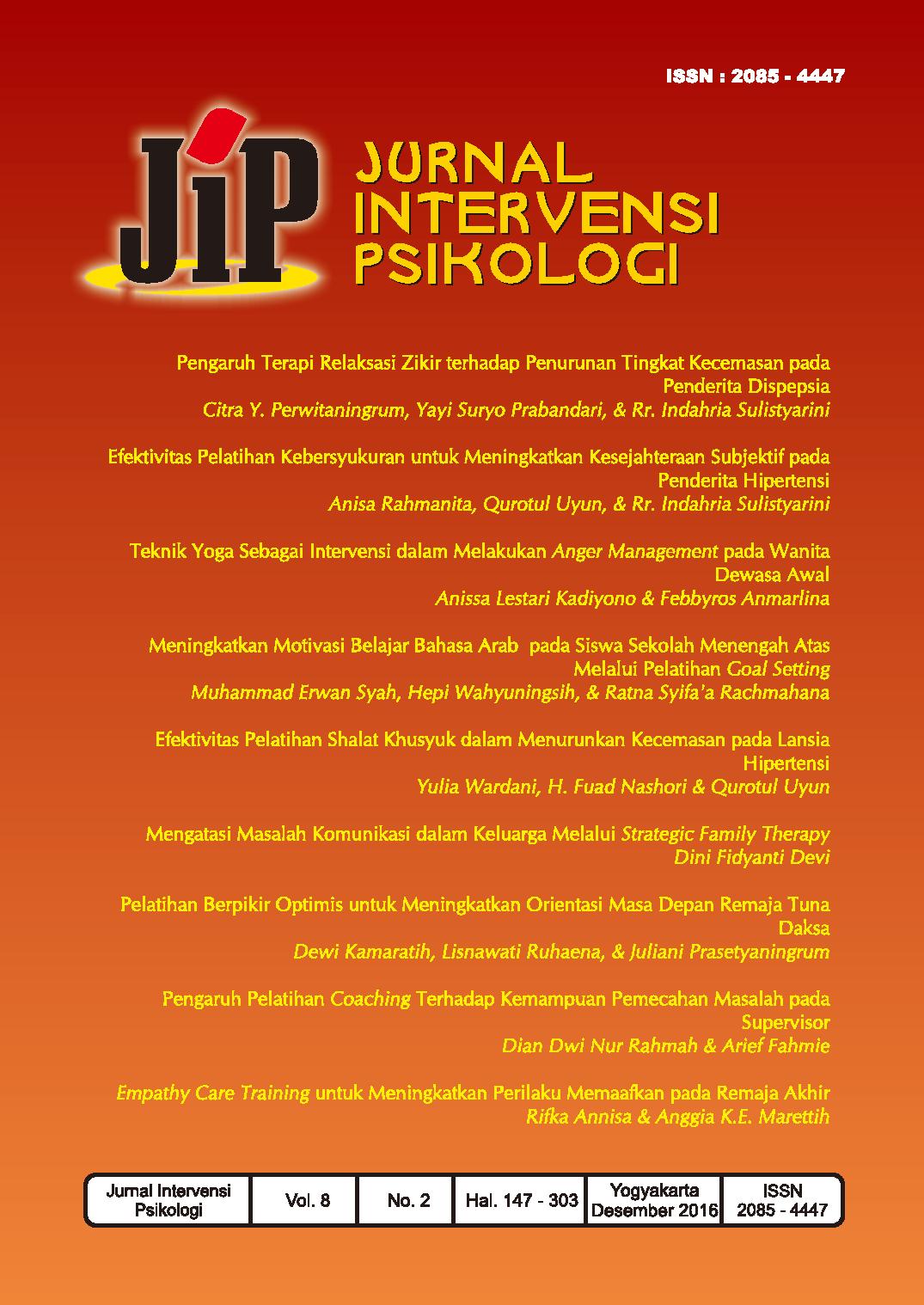Main Article Content
Abstract
This study aims to determine the effectiveness of coaching training in improving problem solving skills of PT.X supervisor in East Kalimantan. The hypothesis is that coaching training could enhance the ability of problem solving of supervisor. Coaching consists of four aspects, there are able to understand the problem, able to seek and assess alternative solutions, able to implement the solution, and able to carry out an evaluation of the solutions that have been implemented. The study involved 26 new supervisors with tenure 1-3 years. Measuring instrument was problem solving scale (Ellis and Hunt, 1993), which had 25 items. Data analysis using independent sample t-test showed a nonsignificance value of p value (p = 0.506> 0.05) in the post-test, the hypothesis stated are not accepted. Thus, there is no difference in the ability of solving problems in experimental and control groups. However, when the implementation of the follow-up showed a significance value p value (p = 0.030> 0.05), which indicates that there are differences in post-test to follow up of the experimental group.
Â
Keywords: coaching training, problem solving ability
Article Details
Authors who publish with this journal agree to the following terms:
- Authors retain copyright and grant the journal right of first publication with the work simultaneously licensed under a Creative Commons Attribution-ShareAlike 4.0 International License that allows others to share the work with an acknowledgment of the work's authorship and initial publication in this journal.
- Authors are able to enter into separate, additional contractual arrangements for the non-exclusive distribution of the journal's published version of the work (e.g., post it to an institutional repository or publish it in a book), with an acknowledgment of its initial publication in this journal.
- Authors are permitted and encouraged to post their work online (e.g., in institutional repositories or on their website) prior to and during the submission process, as it can lead to productive exchanges, as well as earlier and greater citation of published work (See The Effect of Open Access).




